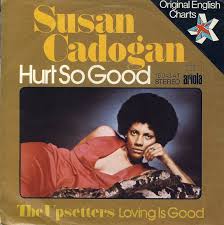
“V’ayavo Avraham – Avraham came to eulogize Sarah and weep for her..."
This week’s Torah reading is Parshat Hayei Sarah, which means, “The Life of Sarah,” and it begins by declaring that Sarah’s life was one hundred and twenty-seven years. Then it says, and I’m paraphrasing, “Vatamat Sarah – Sarah died – Vayavo Avraham – Avraham came – lispod l’Sarah v’livkotah – to eulogize Sarah and to weep for her.”
So, first Sarah dies, then Avraham comes and eulogizes her, then he weeps. It’s a strange verse. Why does it say that Avraham “comes?” Where is he coming to? And if he’s coming to Sarah after she dies, wouldn’t he weep first, and then eulogize her? And to whom is he eulogizing? Isn’t a eulogy something you deliver to others? But this verse doesn’t mention any other people. It just says that he comes – doesn’t say where he’s coming to – then he eulogizes, then he weeps. To answer, let’s reflect first on the question, what is death? Death means the end of a continuity; the end of something or someone that came into being, that was born, that had some span of life, and then expires. And when a loved one that plays a major role in your life dies, it’s not just the person that dies, it’s a continuity in your life that dies as well. Our lives contain all kinds of continuities – the place we live, the bed we sleep in, and so on. And part of that tapestry of continuity is composed of our relationships. If one of those relationships comes to an end because the person comes to an end, then something of ourselves as died as well; the tapestry, or the form of our lives gets torn. And of course, the experience of being torn is pain. So, at this deeper level, we’re talking about pain. And what’s the normal response to pain? AAHH! Crying out. But that’s not what Avraham does. – Vayavo Avraham lispod l’Sarah v’livkotah. First Avraham comes, then he eulogizes, then he cries out. Why? Normally, we cry out in pain because we don’t like the pain. In fact, that’s the whole reason for pain to exist. Pain is there as a signal for danger, so it has to be unpleasant; you’re supposed to not like it. You feel your hand burning, you’ve got to get it out of the fire fast. If you only noticed intellectually, “oh, my hand is in the fire, that’s dangerous,” you’d already be burned. You need something to force you to get out of the fire immediately, and that’s pain. So, crying out is a venting of that impulse to get away from the thing causing you pain, and get yourself to safety. It’s also a signal for others to help you, just as when a baby cries out, and the parent immediately tries to see what’s wrong and help. That’s the ordinary way we operate. But there’s another way to relate to pain, and that is instead of trying to get away, to deliberately bring yourself into connection with the pain, to come to the pain. Vayavo Avraham – come to the pain that is arising and be with it on purpose; that’s the practice of Presence, of being conscious with your experience, rather than be taken over by your impulse to escape. Again, it’s not that there’s anything wrong with that impulse. If your hand is burning, you should certainly escape by moving your hand out of the fire. But when we feel emotional pain, the impulse is the same; you want to get away from it, vent, blame and so on. But if instead you become present with your pain, then you use the pain to strengthen your Presence, to dis-identify from your impulses, and to ultimately know yourself ever more deeply as the space of consciousness within which your experience in this moment is arising. So, on this Shabbat Hayei Sarah, the Sabbath of Life, may we remember to come ever more deeply into the truth of this moment, both in pain and joy, and through Presence with whatever is, grow in our experiential knowledge of the radiant awareness that we are. Good Shabbiss!
1 Comment
Martin Towbin
11/10/2017 04:49:20 pm
Thanks again Reb Brian for an enlightening drash. These always speak to me.
Reply
Leave a Reply. |
Archives
July 2024
|
 RSS Feed
RSS Feed